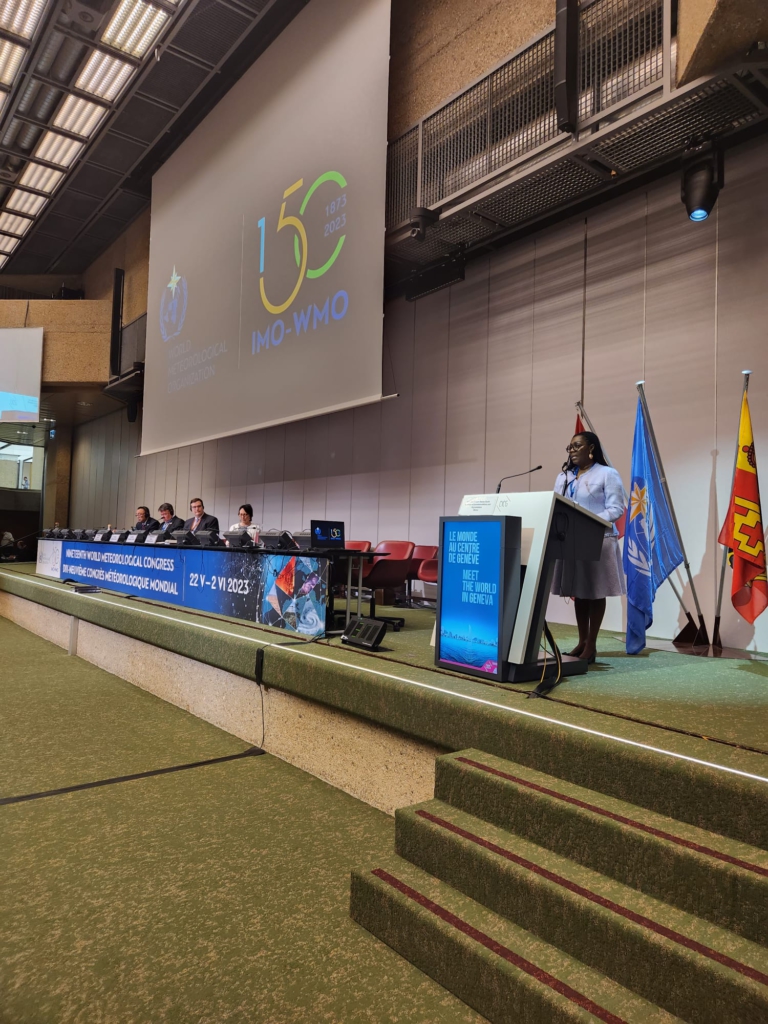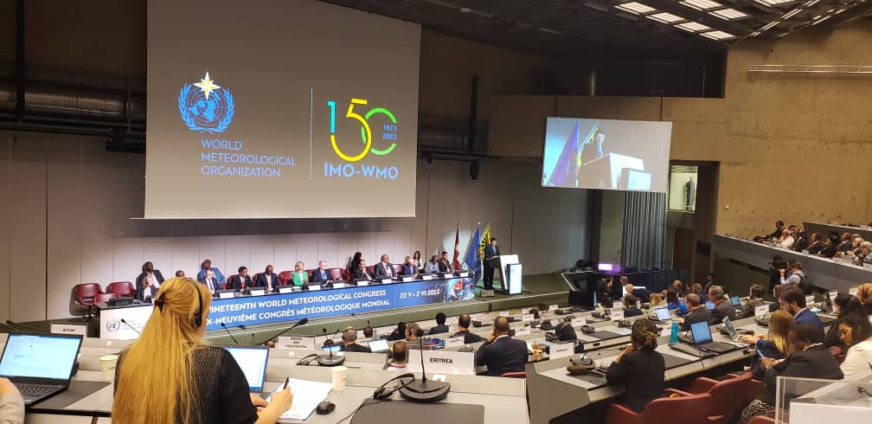Minister of Communication, Ursula Owusu-Ekuful, has expressed worry about the African continent's lower rate of Early Warning System implementation as compared to other regions.
According to the World Meteorological Organization's 2021 State of the Climate Report for Africa, about sixty percent of Africans who do not have access to an Early Warning System are unable to cope with extreme weather and climate change.
“This exacerbates the risk for African people and this situation should not be allowed to persist. We have to be proactive and to protect its people through Early Warning System using modern digital technology,” the minister said.

Ms. Owusu-Ekuful also stated that technological advancements such as satellite monitoring have enabled the National Meteorological and Hydrological Services (NMHSs) to predict weather conditions with greater accuracy, allowing authorities to provide more specific, localized warnings to people in affected areas. And that the integration of technologies such as social media, apps, text messages, and push notifications make it easier for authorities to reach out to individuals in a timelier manner.
“Leveraging these technologies is part of our strategy to mitigate the gaps in access to early warning to provide timely weather services. The Ghana Meteorological Agency’s ‘My Flood Risk Accra App’ which provides real-time flood and weather alerts for our capital city was launched in August 2021. The App informs citizens about their exposure to flood risks for early preparedness and early action,” she said.
An Early Warning System is a climate change adaptation measure that uses integrated communication technologies to assist communities in preparing for hazardous climate-related events.
A successful EWS saves lives and employment, as well as land and infrastructure, and contributes to long-term sustainability. Early warning systems will aid public authorities and administrators in their planning, saving money and preserving economies in the long run.
Working with a variety of partners, the UN has launched a number of unique Early Warning System efforts in vulnerable areas across the world.
The minister told participants at the World Meteorological Organization's 19th congress in Geneva that GMet uses a USSD Code as part of the GMES and Africa Project for marine and ocean forecasting, which provides three (3) days sea forecast for artisanal fisheries, upstream, marine transport, and hospitality sectors, among others.
“Ghana is also using Impact-based Forecast (IBF) now, providing updates on the likelihood and impact of extreme weather expected over specific areas to inform planning and support decision-making especially for vulnerable communities.”
Latest Stories
-
Hearts of Oak reassign Ouattara as Special Advisor after hiring Didi Dramani Head Coach
21 seconds -
Fix the cracks first – Patrick Boamah advises NPP ahead of flagbearer race
3 minutes -
Ghana’s youth innovation model can power Africa – NYA boss tells Cape Town summit
4 minutes -
New Edubiase CEO reveals $24,000 payment owed to colts club in Salim Adams transfer saga
10 minutes -
John Jinapor tasks new VRA Board to lead Ghana’s energy transition
11 minutes -
MTN Group supports economic governance training for public officials
11 minutes -
A Shameful Absence: The fall of Hearts and Kotoko in African football’s new era
27 minutes -
VRA reaffirms commitment to sustainable community development across operational areas
27 minutes -
GIPC to sanction businesses failing to register Technology Transfer Agreements
28 minutes -
I am jealous of NDC creatives in Mahama’s government – Socrate Safo
31 minutes -
Mining companies urged to invest in technology for safe operations
37 minutes -
What crime did they commit? – Ntim Fordjour slams Mahama gov’t over police action on teachers
44 minutes -
BoG acted within labour law terminating employment of some persons – Austin Gamey
1 hour -
‘Work to make NPP attractive’ – Former Constituency Chairman charges
1 hour -
NPP no longer upholds its tradition of firm leadership – Patrick Boamah observes
1 hour

